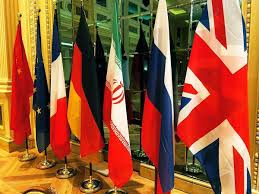Istanbul — In a critical diplomatic engagement on July 25, iran nuclear talks with the European trio of Britain, France, and Germany (known as the E3) convened for serious and detailed nuclear negotiations at Iran’s Consulate in Istanbul. The talks marked the first direct face-to-face meeting between the parties since last month’s Israeli and U.S. airstrikes on Iranian nuclear and military sites, which had escalated regional tensions and complicated ongoing diplomatic efforts.
The iran nuclear talks lasted approximately four hours and were led on Iran’s side by Deputy Foreign Ministers Kazem Gharibabadi and Majid Takht-e Ravanchi. The European delegations were equally high-ranking officials from the foreign ministries of the E3 countries. The meeting was conducted in a frank and constructive manner, focusing primarily on Iran’s nuclear program, the contentious “snapback” mechanism for reimposing UN sanctions, and possible pathways to revive the 2015 Joint Comprehensive Plan of Action (JCPOA), the nuclear agreement from which the U.S. withdrew in 2018.

Discussions and Positions:
The extent and conditions of uranium enrichment by Iran, with Tehran reaffirming its right to pursue nuclear activities as per the agreement, but also expressing a willingness to discuss confidence-building and transparency measures.
Sanctions relief mechanisms, with the European parties pressing for renewed cooperation with the International Atomic Energy Agency (IAEA) and reductions in Iran’s enriched uranium stockpiles to avert triggering automatic UN sanctions via the “snapback” clause.
Broader Regional Security Context
While the iran nuclear talks agenda dominated the formal discussions, Iran used the forum to seriously criticize European attitudes regarding the recent 12-day Israeli-U.S. military campaign that targeted Iranian nuclear and military facilities in June. Tehran conveyed its principled positions on the snapback sanctions mechanism and the wider regional conflict, reflecting interconnected security concerns amid ongoing Middle East volatility.
Both Iran and the European parties agreed to continue consultations, acknowledging that despite the serious and detailed nature of the talks, significant differences remain. The Istanbul meeting serves as a cautious but important step toward re-engagement and potential de-escalation in the nuclear dispute, with the looming UN sanctions deadline adding urgency to diplomatic efforts.
European diplomats indicated that without visible progress, they remain prepared to reinstate punitive sanctions on Iran, but have offered some flexibility contingent on Tehran’s full cooperation with the IAEA and willingness to negotiate terms that ensure compliance.
For Iran, the talks are pivotal to maintaining its nuclear sovereignty while seeking relief from crippling sanctions that have hurt its economy. The dialogue also reflects Tehran’s resistance to pressures perceived as unfair or politicized, particularly following recent military strikes.








